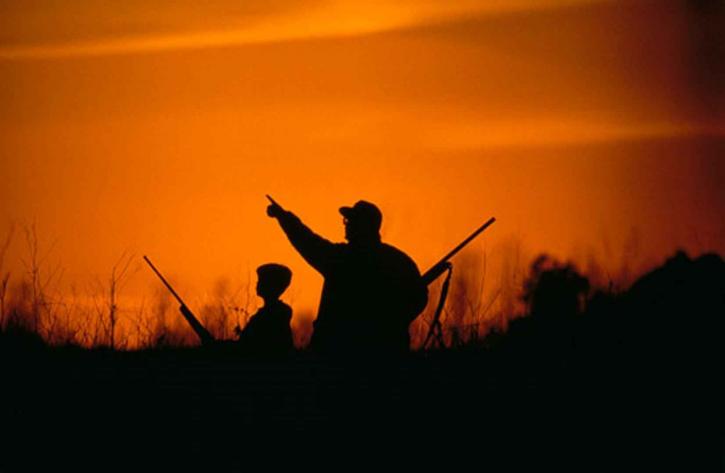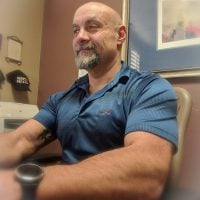“Are you really that upset about a lion?” she asked calmly.
She was completely bewildered by my interest in the killing of an animal thousands of miles away.
“Well, it’s more than just a lion,” I replied.
“Then what’s it about? Nature is brutal, and everything must eat. Man is an animal in that natural cycle, so all that dentist did was follow his natural instinct to kill. Certainly you can see that. God wanted it this way.”
My head began to swirl, realizing a little too late I was about to be sucked down into the right-wing vortex. It seemed I was about to begin a debate with a mind that had given up on itself long ago, with a soul that has decided at some point that it simply had no choice in deciding who, and what, it was to be.
In the dizziness I heard words like, “God’s plan” and ” we are all sinners.” I heard synopsis after synopsis of man’s fallibility, in his innate weakness, and in what would ultimate be the path to his salvation. Somewhere along the line the “we were given domain over the animals” was thrown in my direction.
I understood her plight, even if I could not agree with it. Those who can’t recognize their own power in the process of surrender simply abdicate it. The cause, and thus the effect, become the responsibility of someone, or something, else. In this mindset, surrender is not something we actively participate it, it is something that happens to us.
Despite all of the dizziness, I was able to gleam some points I’d like to share from this conversation. I survived the vortex mostly unscathed, even if I had a slight headache.
Such is the price we pay for social interaction.
What is it about Cecil?
It is not, to me, just about the vicious death of a lion.
Nature can be a vicious machine if you look at it in a certain way. Death is everywhere, as is what appears to be brutality and chaos. There appears to be little mercy, little regard for morality, and little in the way of compassion as Nature goes about her work. The strong kill the weak and the mighty kill the less-gifted of all ages. There is no mercy for the young, or the old, and the end comes brutally for most in ways that require a “viewer discretion is advised” disclaimer before being watched.
I don’t really see it that way. I see Nature as being as gentle as possible in its need for continuation and survival. I don’t see Her killing for the sake of sport, or the the need to satiate an ego long lost in what matters. I don’t see her torturing, or indulging in greed. I see Her being efficient in Her ways, potent in Her process, and clean in the way She guarantees, at least for the moment, Her own survival.
Nature doesn’t have a choice in how it behaves, but man does. Nature follows a set of rules created to maximize Her growth. Death, in nature, is not about the dying as much as it is about the life that death creates.
Nature’s mantra seems to be, “In dying I offer you life, and in living I continue this experience.”
Man, it seems for the most part, has distorted this mantra to his own egoic set of values. Killing has become less about survival and more about gluttony. Hunting is not a method of feeding oneself and one’s family, it has become a sport (and not a very fair one). We have turned the very sacred act of ensuring Nature’s survival into a game where the one with most heads hung on a wall wins.
You’ll never see a buffalo head on the wall of a lion’s den. No, her trophy is in each breath she takes. That’s Nature at Her best.
The killing of Cecil was, to me, much more about the separation of some men from their Natural state of being. It’s in the separation of man from his god, in man’s mind from his consciousness, in man from his the very truth of who is is.
It’s less about (in my best South Park voice) “Oh my God, he killed Cecil. The bastard!” and more about wondering where that man so lost touch with himself that he’d find great pleasure in stalking a great beast, shooting it from a distance only to skin it and hang its head on a wall somewhere.
I felt sadness for that dentist, and for the Nature that seems to have lost him some time ago.
What about the public’s reaction?
It’s quite obvious that people can tend to lose themselves reacting to someone who has lost themselves. We tend to react violently against the violent, stubbornly against obstinate, unconsciously against the unconscious. It seems the public reaction to Cecil’s killing follows this pattern.
It seems a vast majority of people wanted to kill a man who had killed a lion. They wanted to punish him, beat him, scourge him and ostracize him from their community. They wanted him to suffer. Human beings who seemed to care so much for other beings simply shed their caring ways in the face of a man who didn’t share their values. What formed was a modern day social media lynch mob out to hang a hunter.
I suggest we will never be free of hate until we free ourselves from it. We will never truly be able to change society until we change ourselves. Wanting to kill a hunter because he killed an animal does not make me any different from the hunter or the animal. The source of my reaction and my behavior is the same, as is my behavior in that swirl of mindless confusion.
Mindfulness demands that we observe ourselves in the midst of our reaction. For me, I always ask myself, “will this make me feel happy?” I always want to feel happy.
The dentist, however, seems to be experiencing the Law of Attraction firsthand. Whatever mechanisms within him that create a desire to kill for the sport of it have attracted exactly what they’ve asked for. I can’t really vilify those reacting angrily because they serve a purpose, too. They can expose within each of us the very energy we exude.
How can we effect change?
Change always starts from within. I’m not sure the best idea for change is to try to change the hunter or the hunted. Sometimes all it takes is to use an event like Cecil’s shooting to find a way to change ourselves.
My friend had it partly right when she said, “People are who they are. You can’t change the world.”
I thought about that for a bit, and let it simmer inside me.
“You must be the change you wish to see in the world” was my response, stealing one of Gandhi’s greatest suggestions.
“What does that mean?” she asked. Good question.
My mind went back to the days when I hunted, when I actually killed things for the sport of it. I remember the thrill of the hunt, and I relived the sadness I felt at the end that served in contrast. I hunted to prove my machismo to the male members of my adopted family, and to prove somehow, in some way, that I belonged.
I felt enormous sadness when I killed something. So much so that I stopped hunting after my last deer kill about 30 years ago. Sure, we ate the meat, but it was always seasoned with the sadness that I had taken this life, and ended all that this being was ever to be.
If you are eating sadness, you will become sadness. I had to stop. I also believe that if we actually had to kill our food there’d be a hell of a lot more vegetarians in the world.
The dentist had a much different reaction to killing. He enjoyed it. He enjoyed the thrill of the hunt, and seems to bask in the glow of the kill. He doesn’t seem to see his trophies as reminders of great sadness, but sees them as a moments of great glory. We are contrasts, him and I, and I’m not really sure either of us is wrong.
For me, I resort to non-violent reactions because that is what I wish to see in the world. Unless you are a deer fly or a mosquito, you will get the kindest part of me. I don’t wish to kill, and I don’t wish to injure. I simply wish to be happy.
Being socially active causes differences of opinion. As my mind began to swirl in my friend’s right wing vortex, I know that the unbalance represents my sincere desire not to be there. It is not about my friend as much as it is about the places that I wish to be. So, as I did in this conversation, I practiced the focus that years of meditation have provided. I stayed true to who I am, and honored who she was. When I felt the proverbial dizziness, I simply cleared my head and regained focus.
In the end, we changed the world. A conservative mind met a liberal mind, had a discussion that benefited both and we remained friends. We honored each other in a political discussion about a social event and not only remained friends, but did so in the most cordial of ways. Speaking for myself, I can say I learned a lot from that discussion, and experienced a truth in a moment that could have went so horribly in the other direction.
As for Cecil, his killing did something that his life could never have done. It raised awareness of the illegal hunting trade, and the horrible images of his death (which served no real purpose otherwise) spurred people to action. Hopefully, that action goes beyond the angry rhetoric and vitriol exhibited, and translates into the dentist’s extradition to face the justice every life deserves.
He broke the law, and being American doesn’t make you above it.
Or at least it shouldn’t. But that’s another story.
Relephant:
Cecil the lion’s final photograph, thanks to “Walter J. Palmer, an Eden Prairie man with a Bloomington dental practice” & Theo Bronkhorst.
Author: Tom Grasso
Editor: Renée Picard
Image: Hester Eugene / Public Domain












Read 0 comments and reply